How RadQuest is Bringing New Users to DeFi With Gamification - Decrypt
07/30/2024 15:31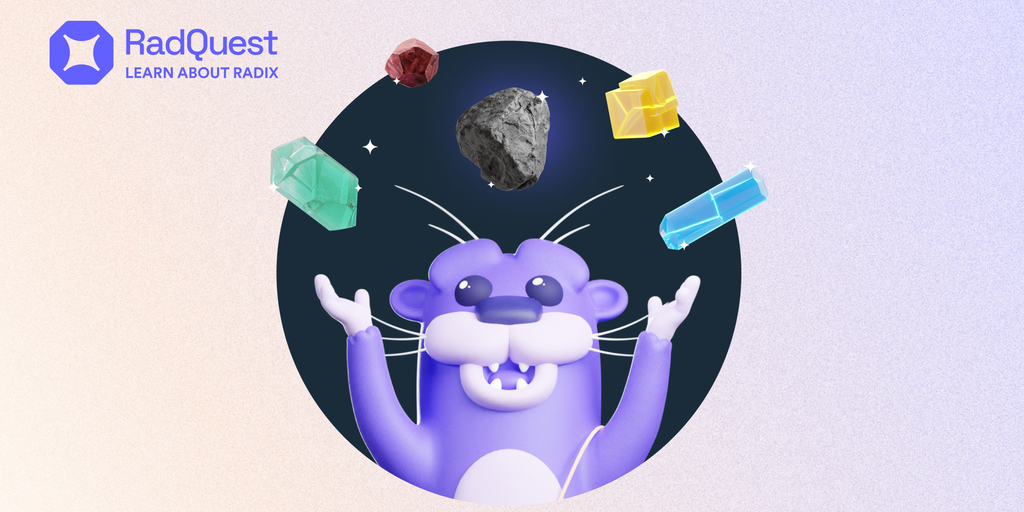
DeFi network Radix has unveiled a new tool that makes onboarding fun, with the help of ‘Monument Valley’ creators ustwo.
Onboarding new users to Web3 platforms can be challenging; even experienced crypto users can find the process of getting to grips with the unique quirks of decentralized finance (DeFi) platforms a struggle—to say nothing of newcomers.
DeFi network Radix has created RadQuest, a gamified onboarding platform, to tackle the problem head on. That meant thinking “from the ground up,” about what it means to bring in both crypto-experienced users and people who are new to Web3, RDX Works Chief Product Officer Matthew Hine told Decrypt.
Above all, the onboarding process had to feel “relevant to them, not just like an info dump,” Hine explained.
RadQuest, he said, focuses on, “giving them opportunity, giving them cool, fun things that they can do that they couldn't do before,” and showcasing the Radix ecosystem’s unique features, including human-readable transactions and its Persona system.
Upon opening the app on desktop or mobile, users are presented with cards showcasing basic and advanced quests. RadQuest’s friendly mascot, Jetty, guides users through the process of setting up a wallet, staking Radix’s XRD token and using decentralized exchanges (DEXs).
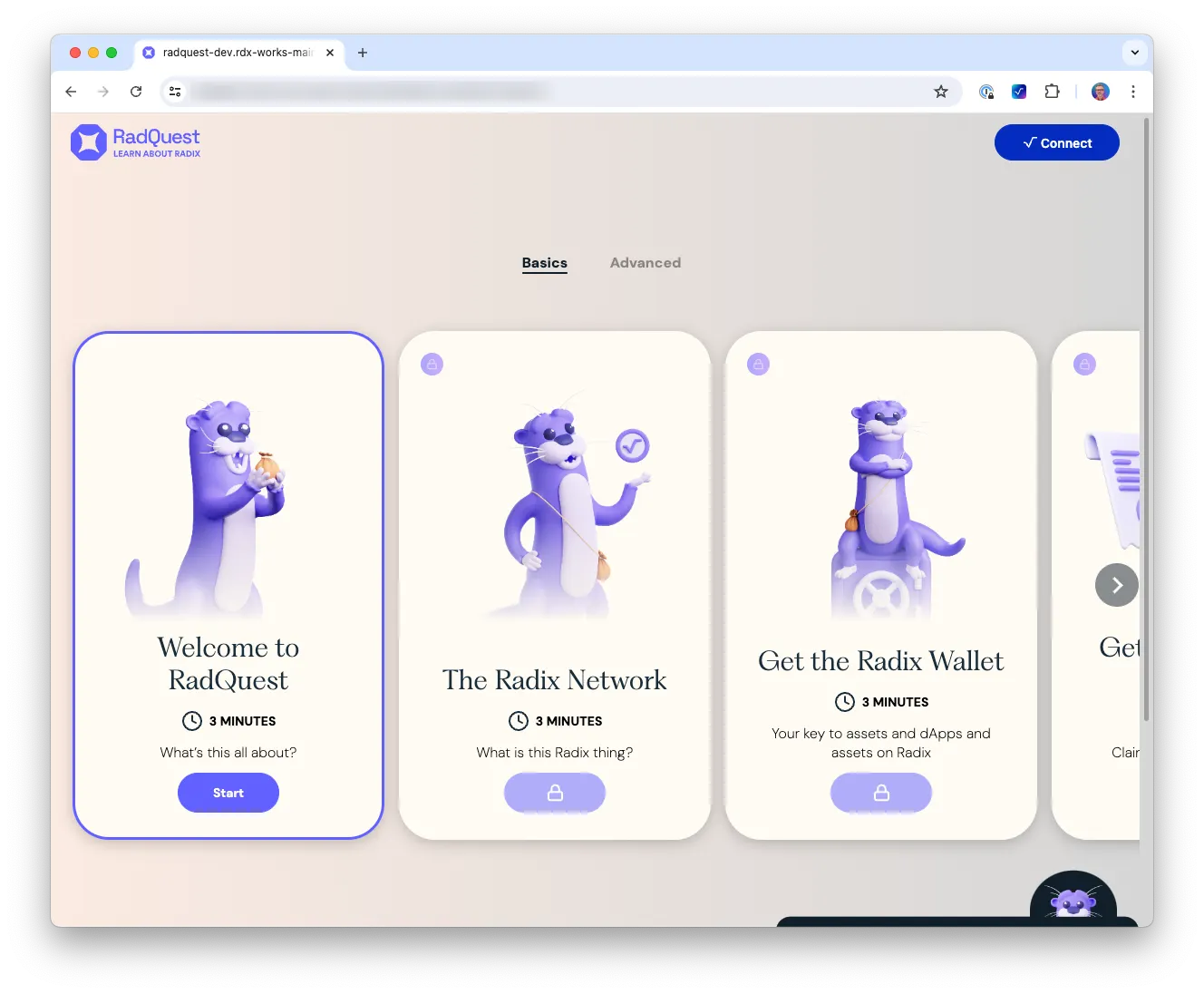
It’s all made possible by Radix’s simple, user-friendly interface; upon setting up and connecting your Radix Wallet, you’re invited to log in using a Persona—a Passkey-like login that’s fully decentralized and secured by the Radix Network.
Other quests showcase tools like JettySwap, an exchange for “toy assets” that lets users “experience the things that you can use on a real DEX,” and Radix’s human-readable transactions. This feature does away with complex interfaces and hurdles such as blind signing and public keys, presenting the steps of a transaction in a clear, comprehensible summary view.
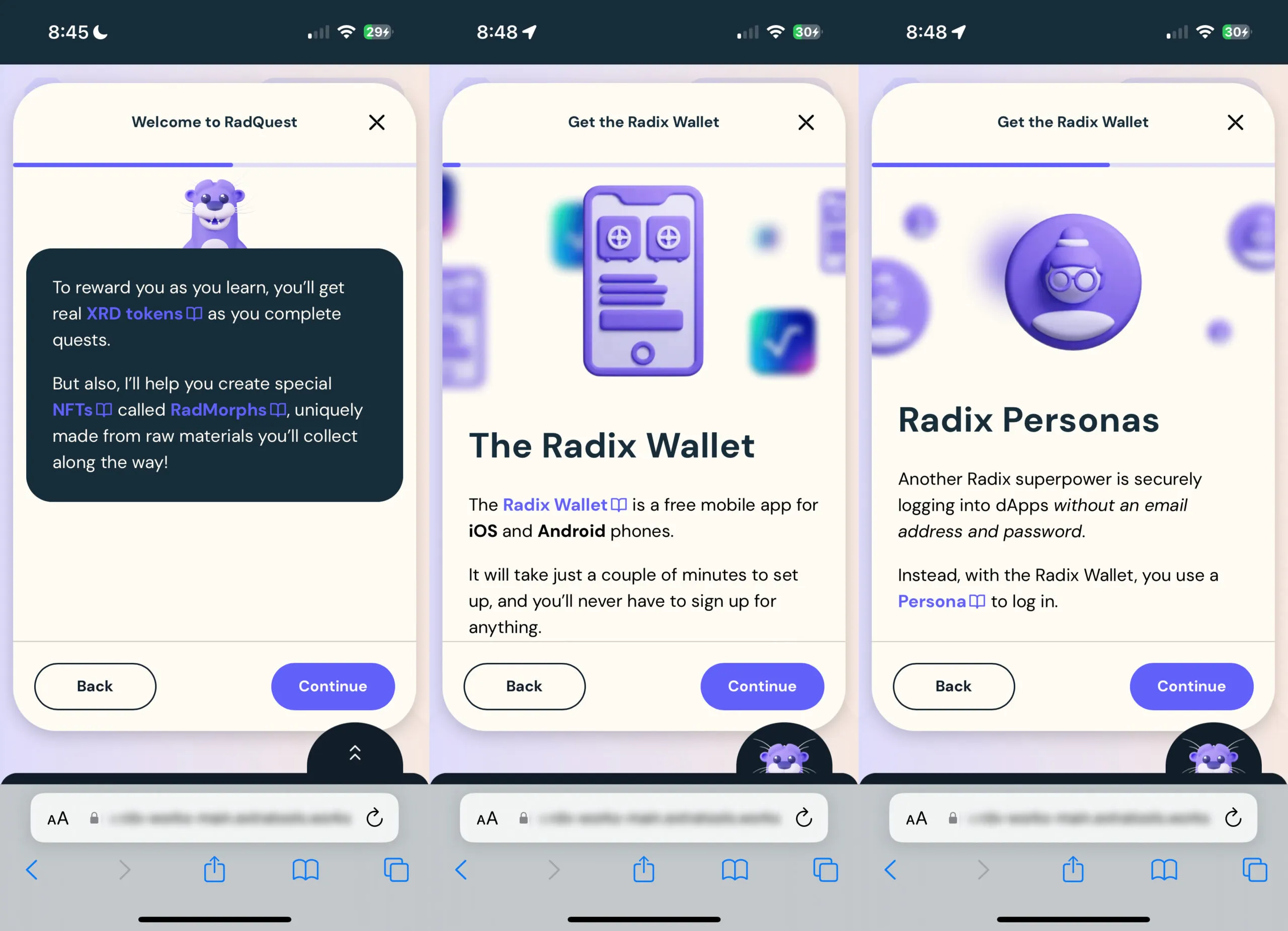
“None of the transaction summary information in the wallet relies on trusting RadQuest,” Hine said. “It’s just parsing the actual transaction that's going to be submitted to the network—and that’s not special to RadQuests. All the transactions you do on the Radix Network are that human readable.”
It’s RadMorphin’ time
The centerpiece of RadQuest’s gamified onboarding process is RadMorphs, an NFT reward that users generate after completing quests to earn gift boxes containing Morph Energy Cards and Elements.
“They’re these cool 3D crystalline structures that are generated algorithmically,” Hine said.
Designed with the help of ustwo, the game studio behind iOS hit ‘Monument Valley,’, RadMorphs are created by users combining earned Elements and Morph Energy Cards within the user-friendly RadQuest interface. Fine tuning of the NFT game mechanics was done in collaboration with a game economics specialist who has previously worked on titles including like Magic: The Gathering.
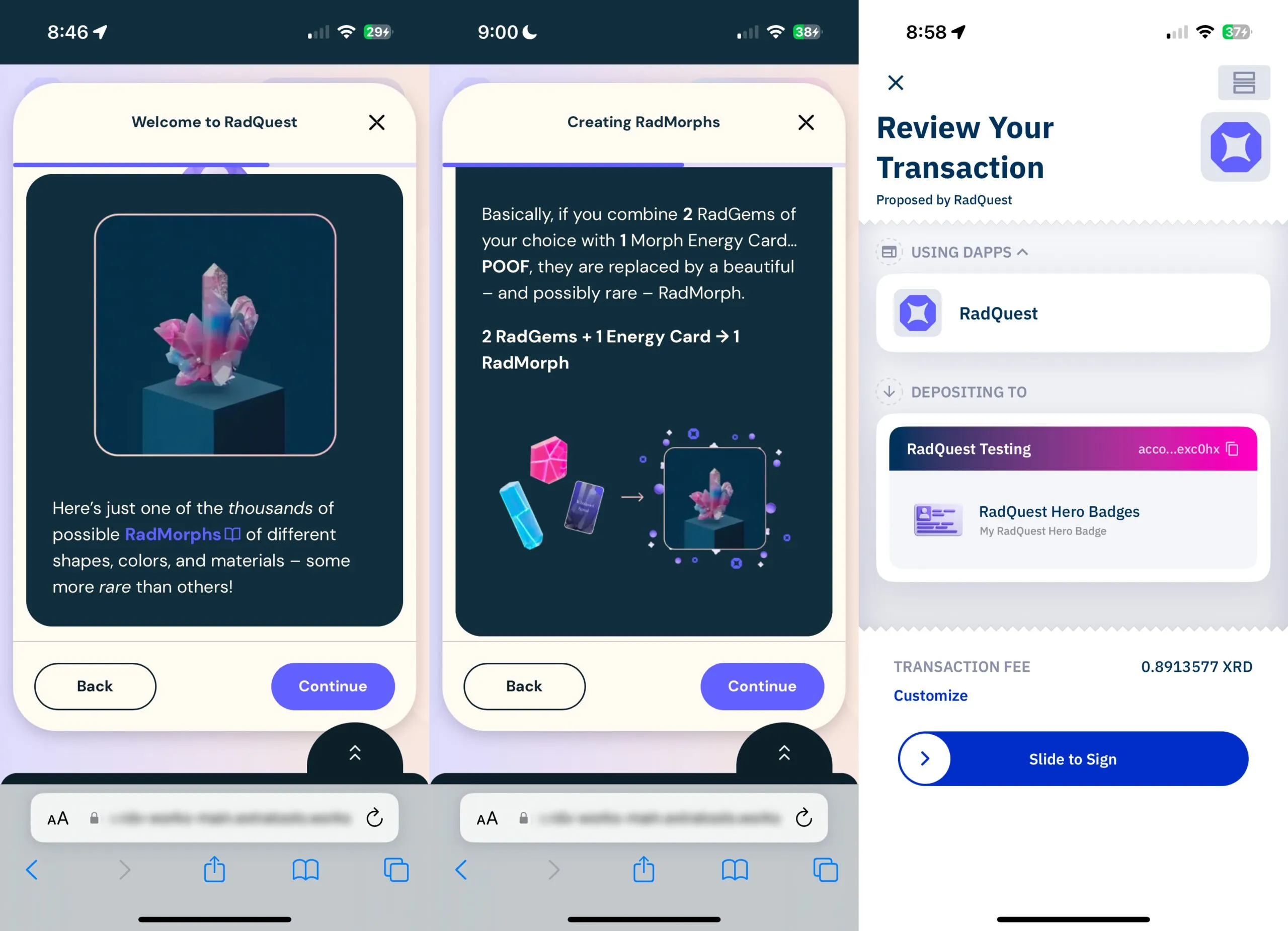
The aim, Hine explained, was to create a customizable, interactive NFT, rather than “a system where you get one and think, ‘Alright, here's a PFP, and that's all it does.’”
“We have this really nice metadata system that allows you to view everything about your RadQuest assets in a very fun, friendly way for users,” he added. That includes an automatic in-wallet view of the NFTs that shows users the “quality” of the NFT, and other interesting specs.
“When you're creating your RadMorph, you're going do it through actual on-ledger interactions with the smart contract using all the cool features that Radix has,” Hine said. “RadQuest puts you hands-on with what Web3 assets can really mean, even outside the applications you're using.”
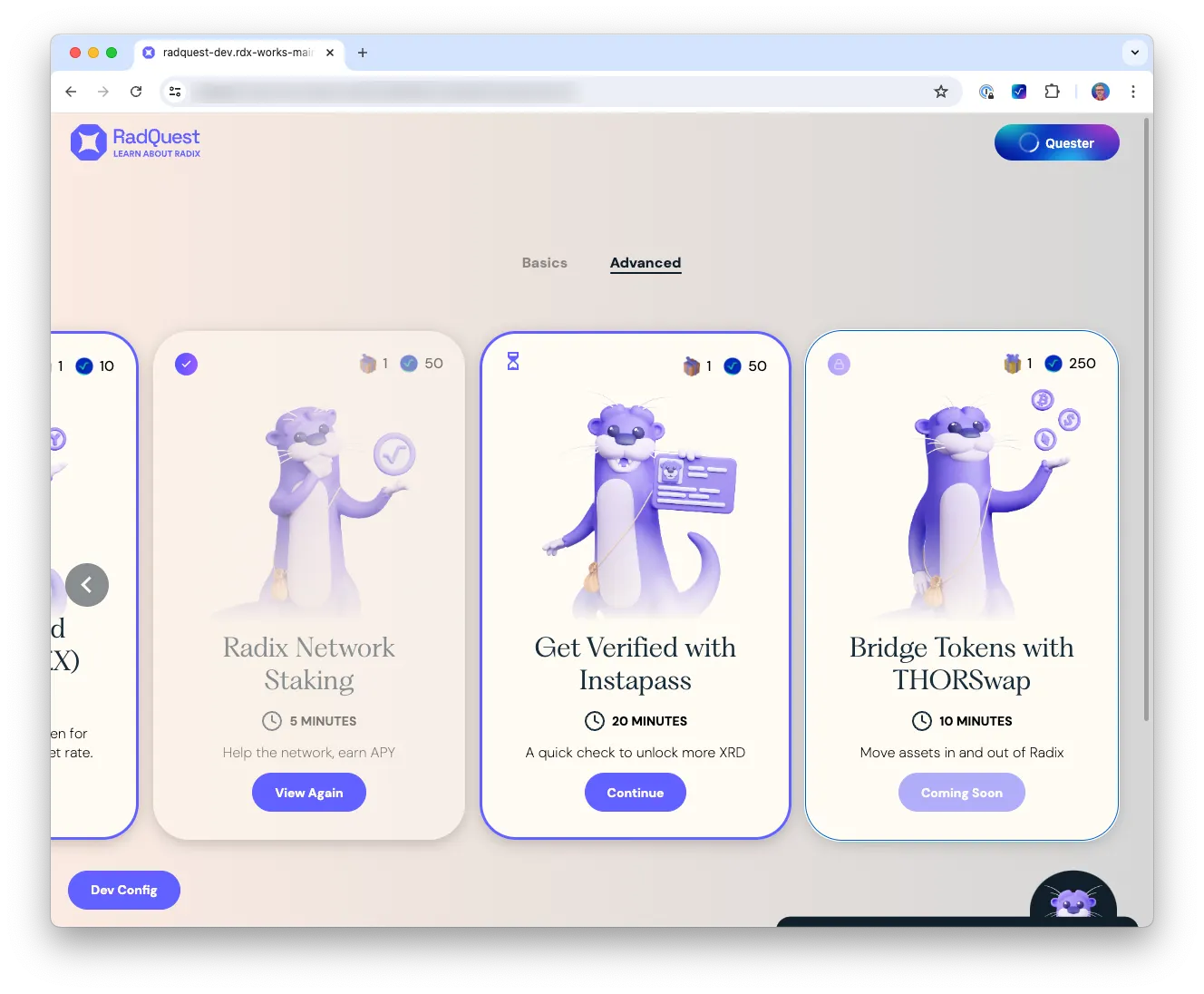
The aim of the platform is for crypto newcomers to feel that “Web3 isn't just craziness, it’s actually something that I can engage with, it's accessible to me,” Hine said. For crypto veterans, meanwhile, RadQuest showcases the Radix ecosystem’s unique features in an accessible way. Hopefully, said Hine, Web3 natives will come away thinking that, “The way Radix is doing this really is as radically better as we’ve been talking about after years of work.”
“We’re at this really nice point where we've got a growing ecosystem of applications, we can start adding more quests here that introduce some of those applications, and introduce people to the advantages of Radix,” he said, adding that, “This is our coming out to the rest of the crypto ecosystem.”
Daily Debrief Newsletter
Start every day with the top news stories right now, plus original features, a podcast, videos and more.